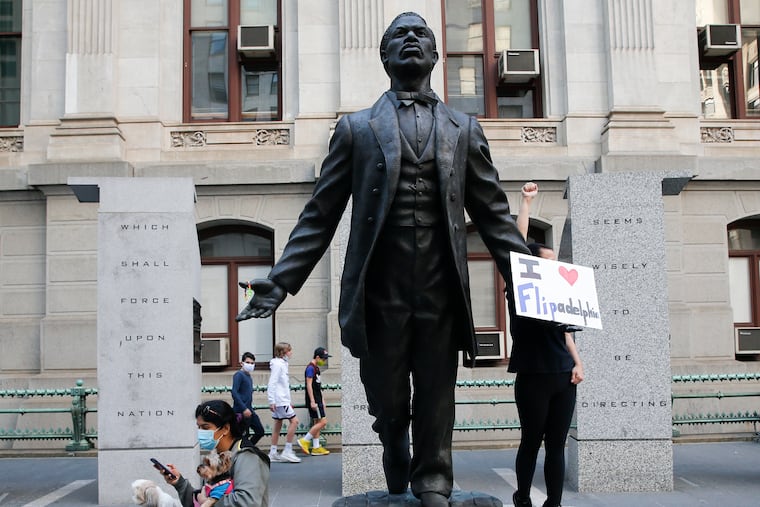A century and a half later, Octavius V. Catto’s campaign for voting rights remains a call to action | Opinion
Amid ballot audits and measures to restrict voting access across the U.S., the 150th anniversary of Catto's death is not just about remembrance, writes Mark Kelly Tyler — it is also a call to action.

“We have come over a way that with tears has been watered. We have come, treading our path through the blood of the slaughtered.”
Those words from “Lift Every Voice and Sing” — commonly known as the Black national anthem — were penned well over a century ago, yet they still serve as both a reminder and call to action.
First, the lyrics remind us that the rights so often taken for granted in our world today came at great cost to a previous generation. For Black people, the right to vote was not easily attained. And once it was secured, it would take almost 100 years to guarantee universal access to polling places regardless of one’s race. While we rightfully celebrate and remember the names of those who helped us cross the finish line in the civil rights movement, we must never forget those who started the race. One such person was Octavius Valentine Catto, often referred to as a “Forgotten Hero.”
» READ MORE: Why Octavius V. Catto remains a civil rights icon in Philly | Opinion
Although he only lived to see the age of 32, he made good use of his time. He spent the years during the Civil War encouraging Black men to serve in the Union army, thus helping to save the nation. He fought tirelessly to end discrimination in public accommodations in Pennsylvania, a fight that would later ignite into a national movement. And most notably, he used his voice and influence to help to secure the right to vote for Black men (Black women were still fighting for the same right) in the Keystone State. This is what makes his murder, or more appropriately his assassination, so painful.
On Oct. 10, 1871 — the first day that Black people were afforded the opportunity to vote without prohibition in Philadelphia — Catto was struck down by a bullet that was meant to turn back the hands of time on Black progress. Not far from the intersection of Ninth and South Streets, a thuggish assassin took his young life.
But the sesquicentennial of the death of O.V. Catto is not just about remembering. It is also a call to action.
» READ MORE: Octavius Catto would’ve relished 2020’s call for equality | Opinion
A full century and a half later, the heirs of Catto’s movement must remain vigilant and tireless in the face of constant attempts to undercut the hard-won victories of the past. We must speak out and denounce the false narrative of a stolen election due to alleged voter fraud in Black majority cities. Such lies created the environment in which Catto lost his life. Such lies were dangerous then — and are dangerous now.
And certainly, while the call to action demands that we push back and resist every attempt to limit and restrict the enfranchisement of Black Americans, it goes further. What would Catto and his contemporaries say to the millions of Black voters who allow elections to come and go without casting a ballot? And not because of some new voter ID law or some other type of election suppression tactic, but simply because of apathy and indifference.
The opportunity to remember Catto in the past bears with it a responsibility to act in the present. It is up to those of us who remember what Catto sacrificed to continue to challenge each and every person to rise above their despair and hopelessness by using the rights afforded to every American citizen. To quote another great song from our past, “We who believe in freedom cannot rest until it comes.”
The Rev. Mark Kelly Tyler, Ph.D., is the senior pastor of Mother Bethel AME Church.